Five alternatives to Steam and why we need them
- 16 October, 2018 11:56
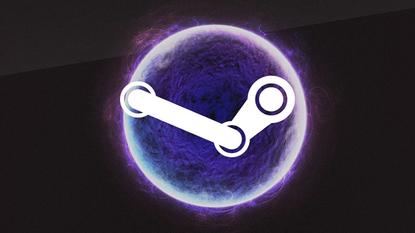
For over a decade now, Valve’s Steam has been the dominant marketplace for digital distribution in the PC gaming world. However, there are plenty of reasons to consider looking elsewhere when it comes to buying the latest games for Windows and Mac.
Why are alternatives to Steam important?
You can save a few bucks
The first reason to consider a digital distribution service other than Steam is because it could actually save you money.
Though the Valve’s storefront does have a pretty widely-known reputation and legacy for its enormous sales, recent days have seen other digital distribution platform offer comparable or better deals.
Even Steam’s own seasonal sales aren’t quite the event they used to be, with Valve retiring flash sales in 2016. If you’re willing to shop around, there’s a good chance you’ll be able to find the game you’re looking for - and at a better price than you’ll find it on Steam.
It incentivizes Valve to improve and innovate
Whether or not Steam could be considered a true monopoly is debatable, but there’s plenty of evidence that Valve haven’t always leveraged their preeminence in the gaming space towards good, or even consumer-friendly, outcomes.
Steam’s policies around hands-off curation policy, Greenlight, Early-Access, refunds and even the Steam Workshop have all incited controversy at one stage or another - which says something about Valve’s broader regard for consumer rights. It also says something about the way that they see their status as the dominant platform-holder in the PC gaming market. Throwing your money at Valve in spite of that only encourages them to continue operating this way.
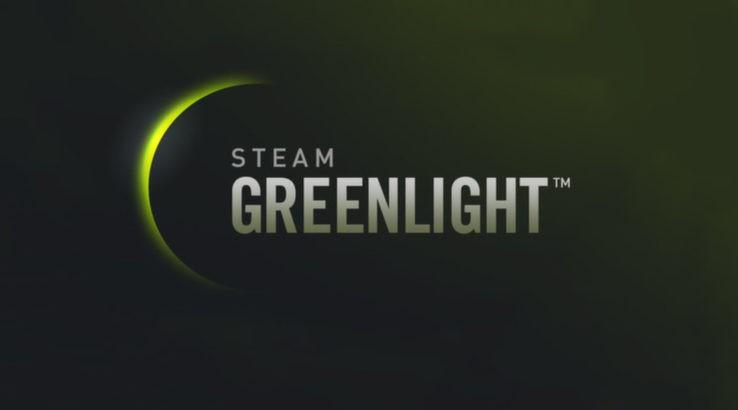 Credit: Valve
Credit: Valve If you’re developing a game for the PC in 2018, you have to play nice with Valve’s Steam store (plus pay them a 30% slice of your revenue) or your commercial prospects diminish by an order of magnitude. What’s more, even if you do opt to play nice with the various policies and requirements, the absent-minded lack of curation in the Steam Store means that your product might just end up buried by the churn of the new releases on the front-page anyway.
Other online store-fronts offer more competitive revenue-sharing splits. But, as it is, ignoring Steam isn’t really an option for many developers. The platform simply has too much reach and power to do so.
It’s a real damned if you do, damned if you don’t type of situation. And while buying software through other digital platforms won’t directly change that, it provides a market-driven incentive for Valve and other platform-holders to eventually look at addressing those issues and changing for the better.
Valve have done nothing to deserve your money
Although there’s a definite degree of convenience that having all your games belong the same account brings, there are a basketful of good reasons to be cautious about continuing to empowering Steam as the defacto platform for PC gaming. Again, it bears repeating that Valve is a private corporation looking to make a profit.
Despite all the playful branding in the Steam store, the company isn’t your friend.
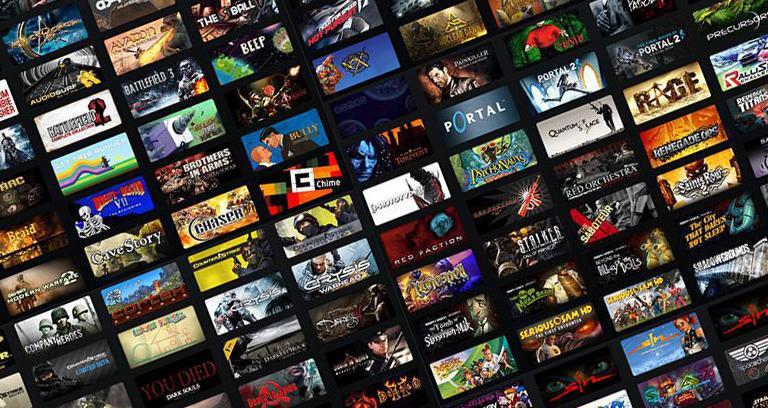 Credit: Valve
Credit: Valve They’re not looking out for you. They’re in it for the money. And their past behavior suggests that they’re keen to take it through the laziest means possible. After more than a decade of selling to Australian customers, the company can’t even be bothered adding support for Australian dollars to their store-front.
Valve are a digital rentier that exploits their dominant position in the market place to take a slice out of the sales of almost every PC game that gets released with little-to-no effort on their part. And, to their credit, that strategy has made Valve an incredibly wealthy company. Many speculate this is why the company no longer invests in single-player experiences like they once did.
But it’s also lent the company an aura of arrogance that’s distasteful and often made manifest by the company’s anti-consumer practices. Valve spent eighteen months clashing in courtrooms with the ACCC over their lack of regards for Australian consumer rights law.
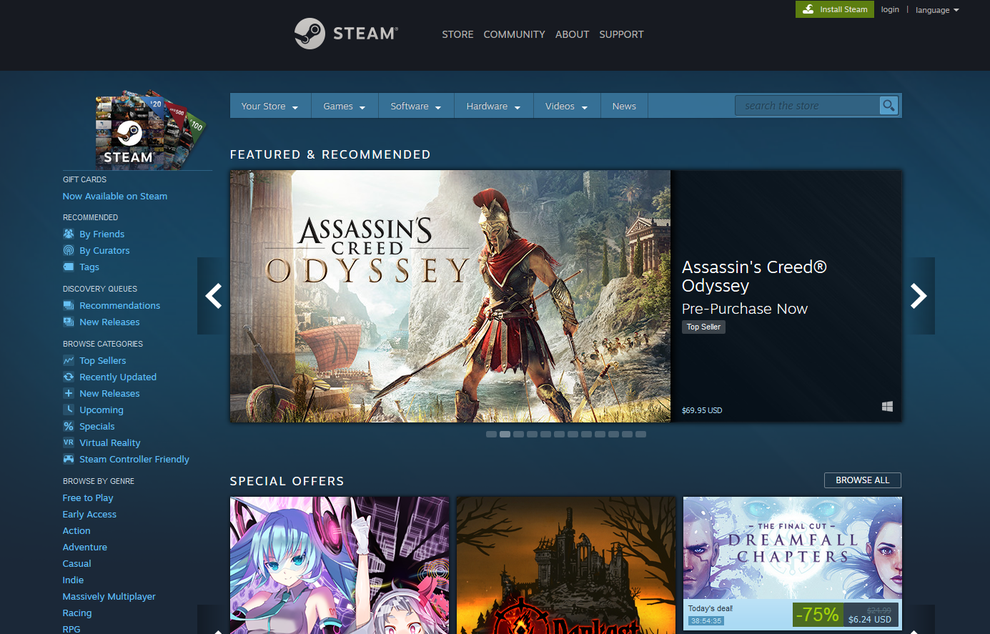 Credit: Valve
Credit: Valve Would you buy furniture or groceries from a company that refused to offer refunds? What about one that forced you to pay prices set by local resellers in US dollars?
If you’re the kind of person who’d agrees that the above is ridiculous and still thinks of Steam as their defacto destination for buying PC games, it might be worth rethinking that.
Next Page: what alternatives to Steam are there?
Page Break
What alternatives to Steam are there?
Good Old Games (GOG.com)
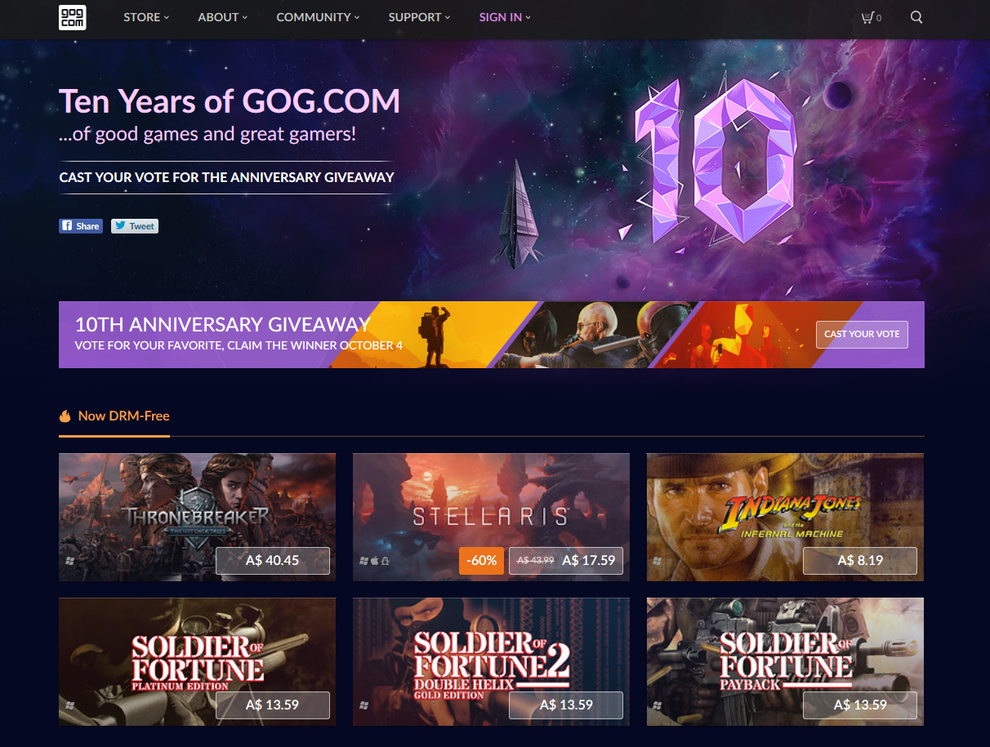 Credit: GOG
Credit: GOG Good Old Games, also known as GOG, is a digital distribution service owned by CD Projekt, the developers of The Witcher games and the upcoming Cyberpunk 2077.
When it first launched, the service’s unique selling point was that they were selling older, sometimes-discontinued PC games that no other service had access to. However, in 2012, Good Old Games rebranded to GOG and expanded to sell both mainstream AAA and independent games.
While Good Old Games does have a desktop client called GOG Galaxy, it’s not required. You don’t have to run games through it in the same way that you do the Steam launcher. As far as digital distribution goes, GOG is one of the better DRM-free options out there.
Humble Bundle
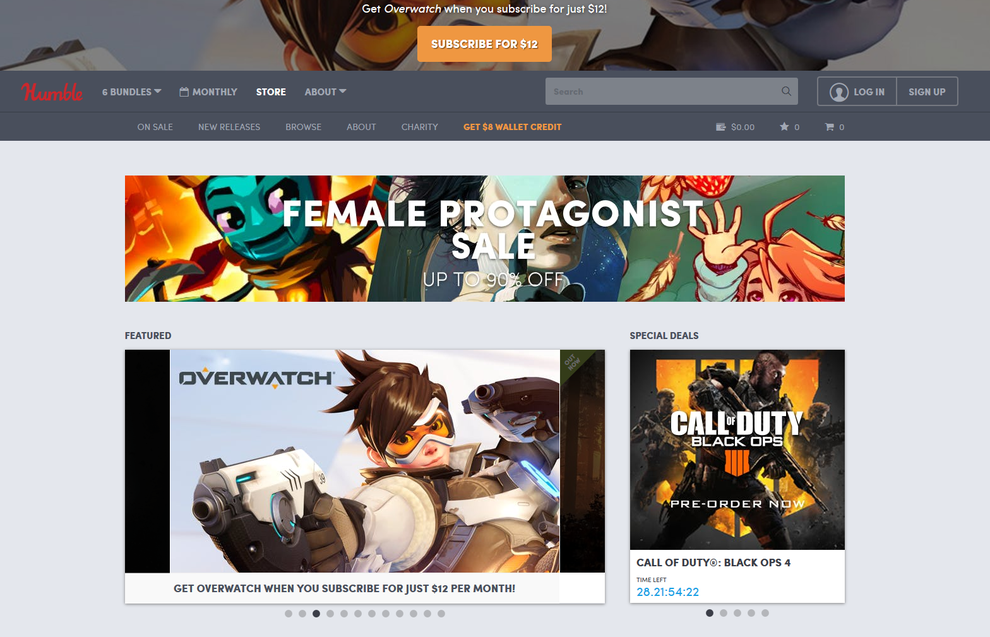 Credit: Humble Bundle
Credit: Humble Bundle Originally launched in 2010 as a series of periodic pay-what-you-want bundles, Humble Bundle has now expanded to host its own digital distribution storefront.
Originally built as an extension of the payment systems used for Humble Bundle, the Humble Store now sells games of all shapes and sizes. They even often have massive seasonal sales that rival Valve’s own.
If you’ve ever bought a Humble Bundle before, all your purchases carry over to the Humble Store. It’s not quite DRM-free in the same way as GOG but many titles on the Humble Store are able to be downloaded and played without the involvement of a third-party launcher.
Green Man Gaming
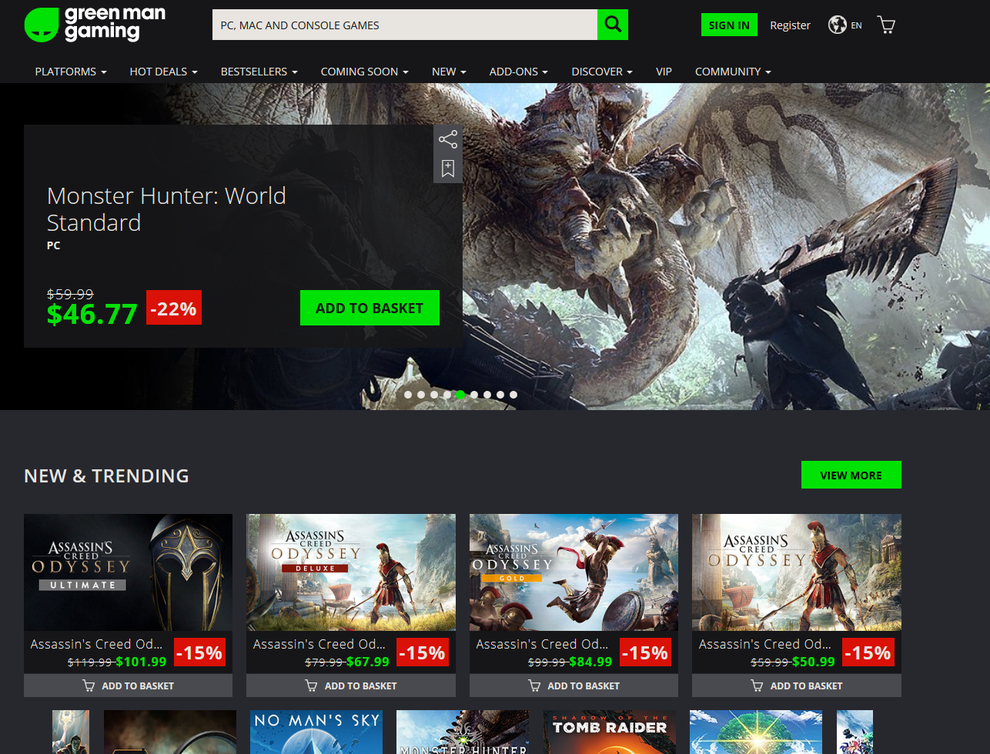 Credit: Green Man Gaming
Credit: Green Man Gaming Like GOG, Green Man Gaming has proved itself an adept competitor to Steam in the context of pricing. These days, it’s almost always worth giving Green Man Gaming a quick look on launch day to see if you save a few bucks. Especially once the Australia tax comes into play.
The downside here is that while Green Man Gaming doesn’t rely on a third-party launcher and the games are often cheaper, many of the titles offered on the platform feed back into Steam. Sometimes, you’re basically just paying for a CD key that you redeem through Valve.
Origin
 Credit: Origin
Credit: Origin Owned by EA, Origin was initially launched to skepticism and outright-scorn by parts of the gaming community.
However, over time, Origin has managed to mature into a compelling digital storefront of its own. Where Steam continues to plow along, year after year in spite of the persistently problematic issues, EA have showed a real ability and willingness to innovate with their digital storefront.
What’s more, with the upcoming launch of the company’s new Origin Access subscription service, it may represent the better value option for mainstream gaming audiences. Available in premium and basic tiers, Origin Access gives you access to a wide swath of games on the service for a monthly fee. You’ll also get access to select major EA published games like Anthem and Battlefield V ahead of release.
Essentially, it’s EA’s take on the Netflix-but-for-games formula that Microsoft are moving towards with the Xbox Games Pass.
Itch.IO
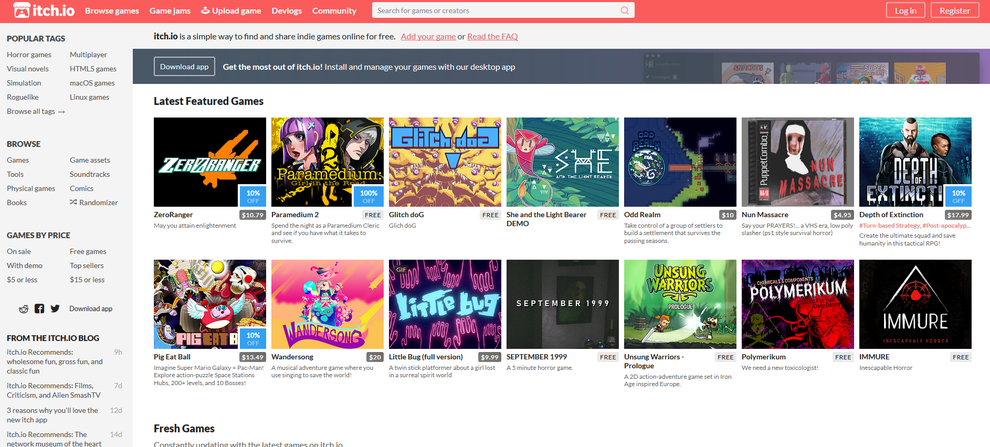 Credit: Itch.io
Credit: Itch.io Though still relatively-young Itch.IO has quickly gained a reputation as the anti-Steam.
Where Steam’s front-page is populated by bigger releases, Itch.IO offers a catalog of super-original and independently developed fare - most of which is free or priced at only a few dollars.
Itch.IO has also earned a reputation as a more creator-friendly platform than Steam. It offers developers get a larger cut, better content policing and curation around offensive material. Itch.IO also features tools designed to help devs to run events like game jams.
It might be too much to call Itch.IO a true competitor to Valve’s storefront, but it’s definitely an alternative. If you want to discover some cool, interesting or just plain weird games, Itch.IO is worth a visit.





